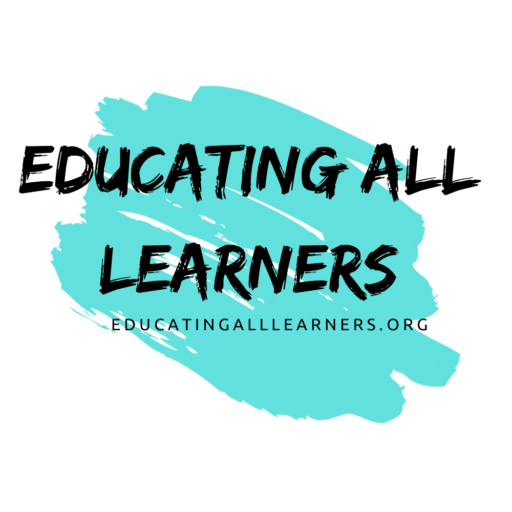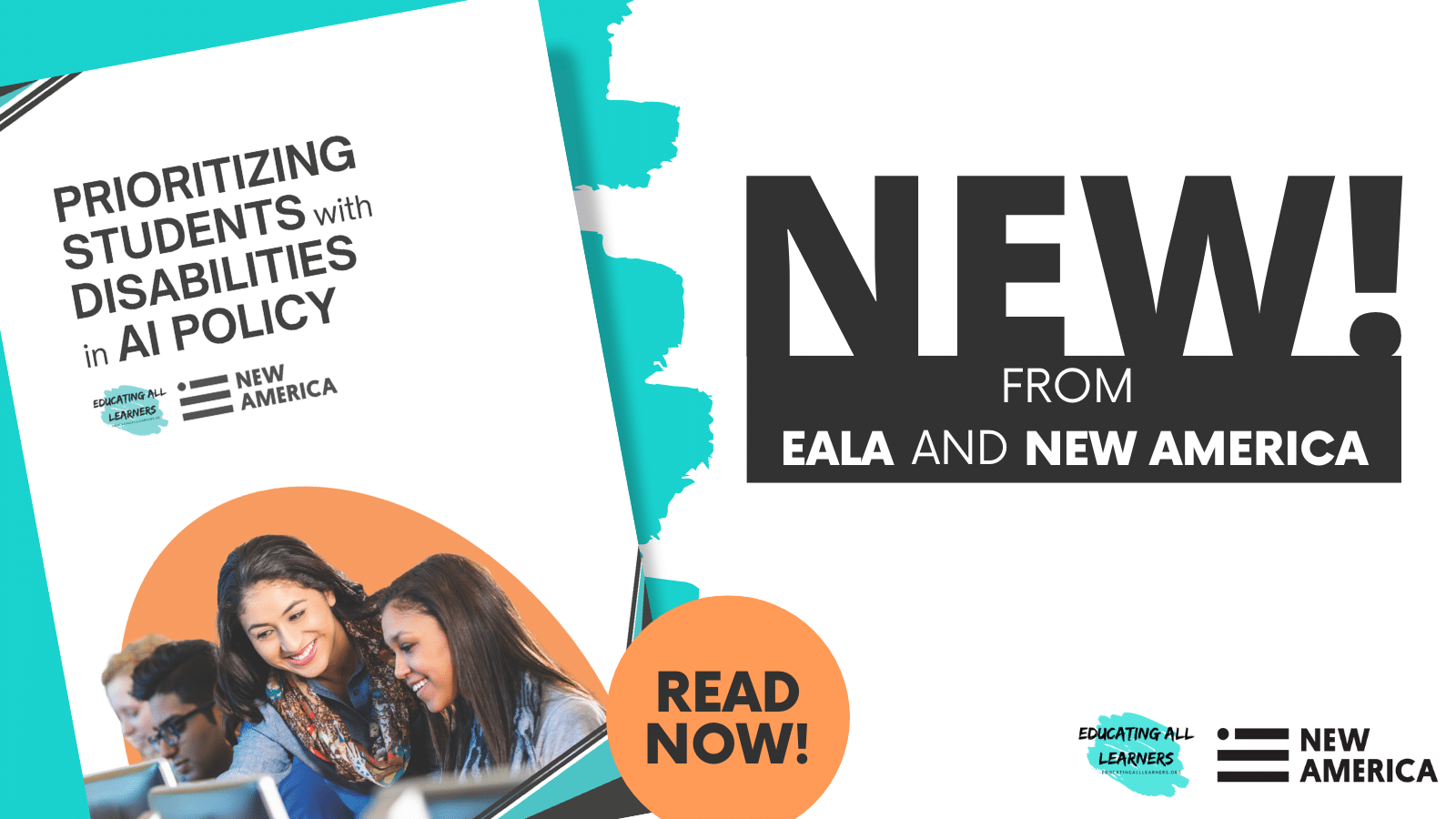A Deep Dive Into EALA’s School Study Tours: Translating Knowledge into Practice
In this case study, we will look deeper into EALA’s initiative, School Study Tours. What are School Study Tours? What are the benefits? How can they be recreated on a smaller scale?
An Educating All Learners Alliance (EALA) Initiative: School Study Tours
School Study Tours (SST) are a unique EALA initiative designed to translate knowledge into practice, fostering more equitable learning environments and student experiences. These tours offer educators a firsthand look at how teachers around the country are implementing EALA Promising Practices to meet diverse learning needs.
“There are so many great examples of school study tours out there (Kauffman Foundation, the XQ Super Schools Project, the Learning Accelerator etc.), but we hadn’t seen one yet that centered on students with disabilities or learning differences. So, we created our own,” Project Director Treah Hutchings shared.
The first School Study Tour (SST) was held in January of 2023, exposing educators to innovative teaching methodologies and immersing them in the practical application of EALA’s Promising Practices.
Exploring EALA’s Promising Practices
EALA’s twelve Promising Practices originate from extensive research by EALA partner organizations across disability advocacy, special education, civil rights, and K-12 nonprofits. EALA consolidated and compiled these key findings into one cohesive list, the EALA Promising Practices, that serves as a flexible framework to center students’ needs.
These are made up of the following twelve categories:
1. Curriculum, Instruction, and Assessment
2. Culturally and Linguistically Responsive Teaching
3. Learner-Centered Models
4. Family Engagement
5. Community Engagement
6. Transition Planning
7. Data Use
8. Scheduling
9. Compliance Management
10. Leadership Commitments
11. Innovative Structures of Support
12. Educator Development
The practices are not intended to be requirements but rather as a starting point for which schools and educators can further center students with disabilities and learning differences. EALA recognizes the diverse needs and unique contexts of each student and school environment and encourages a flexible approach to adaptation and customization. While the practices were compiled with students with disabilities in mind, when implemented, these practices positively impact the learning outcomes of all learners. This work is rooted in Universal Design for Learning with the fundamental belief that designing for the most inclusive and accessible environment generally improves all learners’ environments.
Understanding the School Study Tour Format
Each School Study Tour is carefully organized, partnering with schools within our network to showcase selected Promising Practices. The tour duration typically spans 2-3 hours per school, allowing attendees to observe practices in action. Visiting teachers are split into small groups to allow observation without disrupting ongoing classes. Collaborative reflection sessions at the end of each tour foster shared learning and exchange of ideas among participants. After touring 3-4 different schools, teachers gather for a full day of reflection the following day in teams.
The Power of Collaborative Reflection
Reflection spaces during tours play a pivotal role in fostering shared learning and deepening the impact of the School Study Tour experience.
“Collaborative reflection gives educators the space to share, learn, problem-solve—collectively improving their teaching practices and providing a community to call back on in times of need,” explained Project Direct Treah Hutchings. “Our hope is that in addition to the instructional practices they may wish to replicate, educators also bring this space of reflective collaboration back to their home districts—fostering a culture of continuous improvement beyond the school study tours they attended.”
Testimonials from attendees underscore the value of these reflection spaces in shaping educators’ practices and creating a community for continuous improvement.
“The time to reflect with other participants was phenomenal and gave us time to further our connections with the work being done in other districts,” explained one SST attendee.
Impact and Results
Since the first tour in 2023, EALA has hosted over 35 attendees from 16 different districts around the country and held two different tours – one in San Diego and one in the suburbs of Chicago. The impact of these tours has been significant.
After EALA’s first tour in San Diego, 100% of attendees agreed or strongly agreed that participating in the EALA School Visit advanced their thinking and work. “Being able to discuss these practices with others and witness where we saw specific practices happening within the school day was extremely powerful,” one attendee reflected. “It made me think about what is happening and what is missing within my own program.”
Immediately following the Chicago tour, 100% of attendees expressed the importance of working with other attendees outside of their schools, and 93% of attendees expressed specific strategies they planned to bring home. “The promising strategies have deepened my understanding of the whole inclusive movement to make sure everyone from the students, teachers, administrators, parents, and community are involved in the education of our students,” shared another attendee.
Catalyzing Change and Sustaining Impactful Practices
School study tours can drive positive change by providing firsthand exposure to effective teaching strategies and inclusive approaches, such as EALA’s Promising Practices. The tour experiences inspire educators to adopt inclusive methods, collaborate with peers, and contribute to positive shifts in classrooms or schools.
“I remember when I was a teacher, I always craved more time for discussion and reflection during PDs,” recalled Aurora Dreger, EALA’s Networks Lead. “Our School Study Tours aim to give educators an abundant amount of discussion and reflection time so they can hear from and learn from educators from across the country”.
To measure sustained impact, EALA is creating a learning agenda for SSTs, utilizing highlights from visiting school teams while on tours as well as surveys at three and six months to gather insights into the implementation and adaptation of inclusive strategies. EALA does its best to capture and share the work being implemented through podcasts and case studies, bringing the tours (or the practices shown on the tours) to educators beyond those who physically attended.
Creating Your School Study Tour
For those interested in implementing SSTs in their school or district, here are five steps to consider:
1. Assess feasibility and interest within your team or district
a. Will this work with existing schedules?
b. Is there interest?
2. Determine the scale of your tours
a. Would you want to conduct tours within your school or collaborate within your entire district?
b. Would you want to collaborate with schools outside of your district?
3. Determine your Host Schools & Classes
a. Which schools & classrooms will you be observing?
b. What kind of lessons will you observe, and how do they align with EALA’s Promising Practices?
4. Create your invitee list
a. How many educators are you inviting on these tours?
b. How will you break them up into groups?
5. Plan for collaborative reflection
a. How will your tour attendees take notes?
b. How will you make time for questions and answers with the host schools?
c. When and where will you host a whole-group reflection summit?
Reflections
"What I would tell other educators/leaders"
“School Study tours are more than just a change of scenery from your home school or classroom. It is an opportunity for professional and personal growth, insights, and innovative practices, and a chance to connect with fellow educators from across the country. Why not go?”
“What we are still figuring out"
We want to be responsive to attendee feedback, so the focus for the next two tours will be striking the balance between form and function. We want to see a wide variety of learning environments, but we also want to minimize travel time and feel free at each stop on the tour. EALA is also committed to seamlessly maintaining a sense of community and collaboration among the cohort of educators post-tour.
Resources
About The Author
The Educating All Learners Alliance (EALA) is an uncommon coalition of over 140 organizations committed to resource sharing and community-building that supports the efforts of the education community to meet the needs of students with disabilities.

